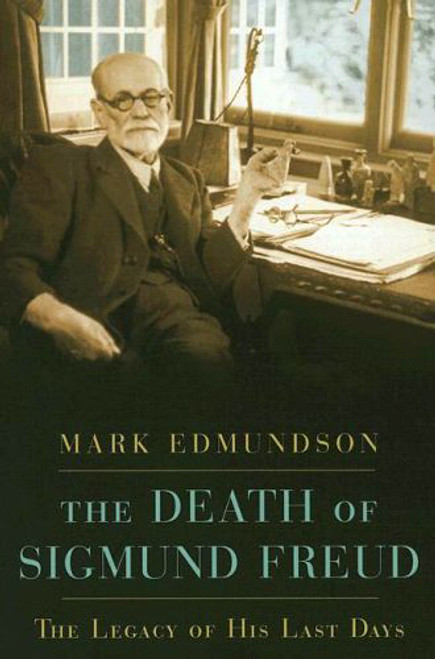A dramatic revisiting of Freud's escape from Nazi-occupied Vienna, his final days on earth, and the publication of his most controversial work―Moses and Monotheism.
When Hitler invaded Austria in March of 1938, Sigmund Freud was among the 175,000 Viennese Jews dreading Nazi occupation. Though Freud was near the end of his life-eighty-one years old, battling cancer of the jaw-and Hitler's rise on the world stage was just beginning, the fates of these two historical giants were nonetheless intertwined. In this gripping and revelatory historical narrative, Mark Edmundson traces Hitler and Freud's oddly converging lives, then zeroes in on Freud's last two years, during which he escaped the Nazi regmie and fled to London.
Upon his arrival, Freud was honored as he had never before been in his long, controversial life. As cancer continued to attack his jaw, Freud, in typical fashion, did not let fame make him complacent, but instead wrote his most provocative book, Moses and Monotheism. By taking a close look at Freud's last years--years that coincided with the onset of the Second World War--Edmundson probes Freud's ideas about death and also about human proclivity to embrace fascism in politics and fundamentalism in religion. At a time when these forces are once again shaping world events, The Death of Sigmund Freud suggests new and vital ways to view Freud's legacy.
Editorial Reviews
“In this and his other books, Edmundson provides a great teaching guide to seeing the world afresh. Medford High's Frank Lears would be proud.” ―Boston Globe
“...Mr. Edmundson proves himself a deft and genial explicator...a superb mediation on two kinds of authority, and in its sober, qualified reverence for Freud Mr. Edmundson provides an example of the kind of relationship to greatness that he is advocating. Mr Edmundson presents us with a figure who still has the power to rouse us from our complacency, whose stern, exacting eyes continue to remind us that we are apt to forget: that we must work to change our lives.” ―NY Sun
“The Death of Sigmund Freud is a thoroughly engaging, solidly informed, and beautifully written book…His [Edmundson's] writing is so good and so totally free of off-putting professional jargon that it draws the reader irresistibly into Edmundson's portrayal of Freud's last 2 years….Easy reading and a wonderful introduction…Those already familiar with Freud's writings can still learn much from this fine book.” ―Journal of American Medicine
“Brilliantly buttressed plea for reconsideration of Freud as philosopher and shrink.” ―Kirkus Reviews
“The Death of Sigmund Freud offers a compelling redescription of why the founder of psychoanalysis retains his relevance today...an engaging read...a stirring account of Freud's final months in Vienna...This is the disruptive legacy of Freud's last year, and Edmundson has found the words to bring it alive today.” ―Los Angeles Times
“By tracing the intersecting stories of Sigmund Freud and Adolph Hitler in the days before World War II, Mark Edmundson sheds a fresh light on one of the most pressing questions of our day: the allure of fundamentalist politics and the threat it poses to the values of civilization. The Death of Sigmund Freud is a bracing, brilliant, and urgent book.” ―Michael Pollan, author of The Omnivore's Dilemma and The Botany of Desire
About the Author
Mark Edmundson is a professor of English at the University of Virginia. A prizewinning scholar, he has published a number of works of literary and cultural criticism, including Literature Against Philosophy, Plato to Derrida, Teacher: The One Who Made the Difference, and Why Read?; he wrote the introduction to Beyond the Pleasure Principle in Adam Phillips's celebrated reissue of Freud's work. He has also written for such publications as the New Republic, the New York Times Magazine, the Nation, and Harper's, where he is a contributing editor.







